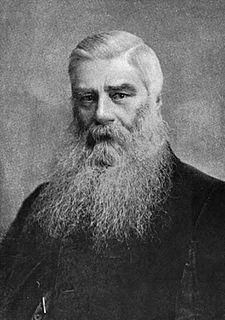A Quote by George F. R. Ellis
What is the nature of true morality? I have argued ... that it must be a kind of ethics involving letting go of one's own interest on behalf of others, being ready if necessary to sacrifice one's own interests for them, even on behalf of an enemy.
Related Quotes
Since you own your life, you are responsible for your life. You do not rent your life from others who demand your obedience. Nor are you a slave to others who demand your sacrifice. You choose your own goals based on your own values. Success and failure are both the necessary incentives to learn and to grow. Your action on behalf of others, or their action on behalf of you, is only virtuous when it is derived from voluntary, mutual consent. For virtue can only exist when there is free choice.
I have Carl Icahn ready to go out and do battle. And I have many others that are great negotiators, ready to go out and do battle on our behalf. And by the way, we'll get along better with these countries in the end than we get along with them now. We have, as in the case of China and so many others, they don't even like us and yet they are eating our lunch in trade.
To be a true hero you must be a true Christian. To sum up then, heroism is largely based on two qualities- truthfulness and unselfishness, a readiness to put one's own pleasures aside for that of others, to be courteous to all, kind to those younger than yourself, helpful to your parents, even if helpfulness demands some slight sacrifice of your own pleasure. . .you must remember that these two qualities are the signs of Christian heroism.
Adults look upon a child as something empty that is to be filled through their own efforts, as something inert and helpless for which they must do everything, as something lacking an inner guide and in constant need of inner direction. . . . An adult who acts in this way, even though he may be convinced that he is filled with zeal, love, and a spirit of sacrifice on behalf of his child, unconsciously suppresses the development of the child's own personality.
If they had only themselves to consider, lovers would not need to marry, but they must think of others and of other things. They say their vows to the community as much as to one another, and the community gathers around them to hear and to wish them well, on their behalf and its own. It gathers around them because it understands how necessary, how joyful, and how fearful this joining is. These lovers, pledging themselves to one another "until death," are giving themselves away, and they are joined by this as no law or contract could join them.
Before making peace, war is necessary, and that war must be made with our self. Our worst enemy is our self: our faults, our weaknesses, our limitations. And our mind is such a traitor! What does it? It covers our faults even from our own eyes, and points out to us the reason for all our difficulties: others! So it constantly deludes us, keeping us unaware of the real enemy, and pushes us towards those others to fight them, showing them to us as our enemies.
You and I, we must carry on, Gemma. I cannot afford the luxury of love. I must marry well. And now I must look after you. It is my duty." "If you wish to suffer, you do so of your own free will, not on my behalf. Or Father's or Grandmama's or anyone's. You are a fine physician, Thomas. Why is that not enough?" "Because it isn't," he says with a rare candor. "Only this and the hope of nothing more? A quiet respectability with no true greatness or heroism in it, with only my reputation to recommend me. So you see, Gemma, you are not the only one who cannot rule her own life.
My running mate, Ajamu Baraka, was out camping out with the homeless in Baltimore . We were both recently at the Standing Rock Sioux encampment where in fact we are both now, a warrant is out for our arrest for participating in civil disobedience to support this very critical stand being taken on behalf of our water, on behalf of human rights, on behalf of our climate.


































